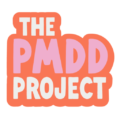funding research
our long-term goal is to fund research for pmdd
PMDD remains critically under-researched, especially in the UK, and this lack of knowledge has serious consequences for those affected. Without a solid foundation of research, healthcare professionals often lack the understanding and resources to recognise, diagnose, and effectively support individuals with PMDD. At The PMDD Project, we’re committed to changing this by funding and championing vital research into the causes, treatments, and impacts of PMDD.
We envision a world where PMDD is no longer misunderstood or ignored. By funding lifesaving research, we are paving the way for breakthroughs that will transform how PMDD is treated and supported across the UK and beyond.
Our approach to research funding includes:
Collaborating with Universities, PhD Students, and Research Bodies
To drive meaningful progress, we’re forming partnerships with universities, PhD students, and research organisations. By funding cutting-edge studies, we aim to advance knowledge of PMDD, from identifying underlying causes to discovering new treatment options. Our goal is to spark fresh insights that will pave the way for a future where PMDD is fully understood, validated, and managed with effective, evidence-based care.
Addressing the Gaps in Healthcare Knowledge
The lack of research on PMDD has left healthcare professionals under-equipped to support those affected, leading to widespread misdiagnosis and ineffective treatment options. By funding high-quality research, we aim to bridge this knowledge gap, ensuring that medical practitioners have access to the information and tools needed to provide the right support and care.
Advancing Treatments and Understanding Causes
Through our commitment to research, we hope to advance treatments, making life easier and more manageable for those living with PMDD. We aim to uncover the biological, hormonal, and psychological factors that contribute to PMDD, so that future generations can benefit from accurate diagnoses, targeted treatments, and improved quality of life.
